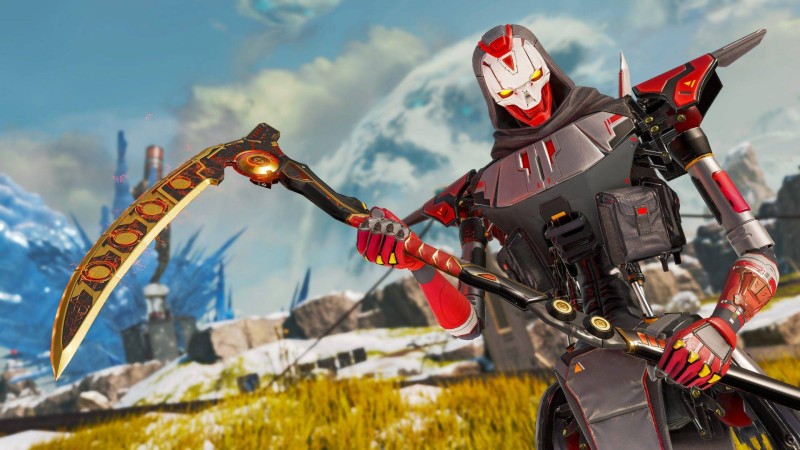Apex Legends, like all live-service titles, is no stranger to balancing updates. Weapons and playable characters alike undergo acute surges and declines based on several factors, with the most prevalent being player behavior. Years ago, Pathfinder reigned supreme across casual and competitive matches; his grapple hook-centric mobility and inconsistent hitbox made him an unrivaled duelist until his ability cooldowns and physique were tweaked. Similarly, the Prowler SMG once rivaled its light ammo counterparts before the Selectfire Receiver – a legendary hop-up that converted the weapon’s burstfire to automatic – was removed from the loot pool. These changes, in addition to many others, morphed the meta in significant ways, but one particular update trumped the rest: Revenant’s rework.
The nefarious simulacrum (robots based on humans) was first introduced in Season 4: Assimilation, and despite capturing the fascination of lore enthusiasts and aggression-focused players, his unremarkable pick rate left a lot to be desired. Revenant’s original kit made him a stealthy assassin: a “Stalker” passive that accelerated crouch walk speed/extended climbing height all while silencing his feet, a “Silence” tactical ability that, when flung at unsuspecting adversaries, dealt damage and disabled enemies for a few seconds, and a “Death Totem” ultimate which prevented death or incapacitation by sending injured users back to the Totem’s location with 50HP instead. Despite these interesting skills, Revenant never reached the same popularity heights as other Skirmisher legends.
Apex Legends Season 18 Trailer:
Apex Legends design director Devan McGuire told me Revenant’s second coming (or “Rebirth,” as some call it) that launched in the aptly named Season 18: Resurrection was implemented to satisfy the core fantasy of the character and carve a space in the meta for him. Simply put, he needed stronger, more viable abilities.
“You played Revenant, sat back, and lobbed shadow balls [or Silence] at people and hoped you hit someone around the corner to maybe make a push on them,” McGuire began. “But even if you did, you had no idea what type of person got affected by it, what the Silence did, and whether or not it was still safe to push. And if you wanted to use your ultimate, you had to coordinate with your team and make sure everyone grouped up to make an effective push. It wasn’t the healthiest thing for the game; we had an Octane-Revenant meta that showed us the dangers of that. So, we looked at it from the ground up and went after a hyper-aggressive/very selfish playstyle and tried to make Revenant fit the game in the way he was meant to. Having that payoff is so rewarding/encouraging when we look back at older legends who have fallen behind or maybe never hit the mark. Not saying that we’re going to be doing a lot of that in the future, but we’ll look for those kinds of opportunities again because they can breathe new life into a character who has sat by the wayside.”
If, like me, Apex suits your fancy, be sure to check out our list of the top 10 shooters to play right now for more gun-toting options! What other legend reworks would you like to see in Apex Legends? Give us the details below.



